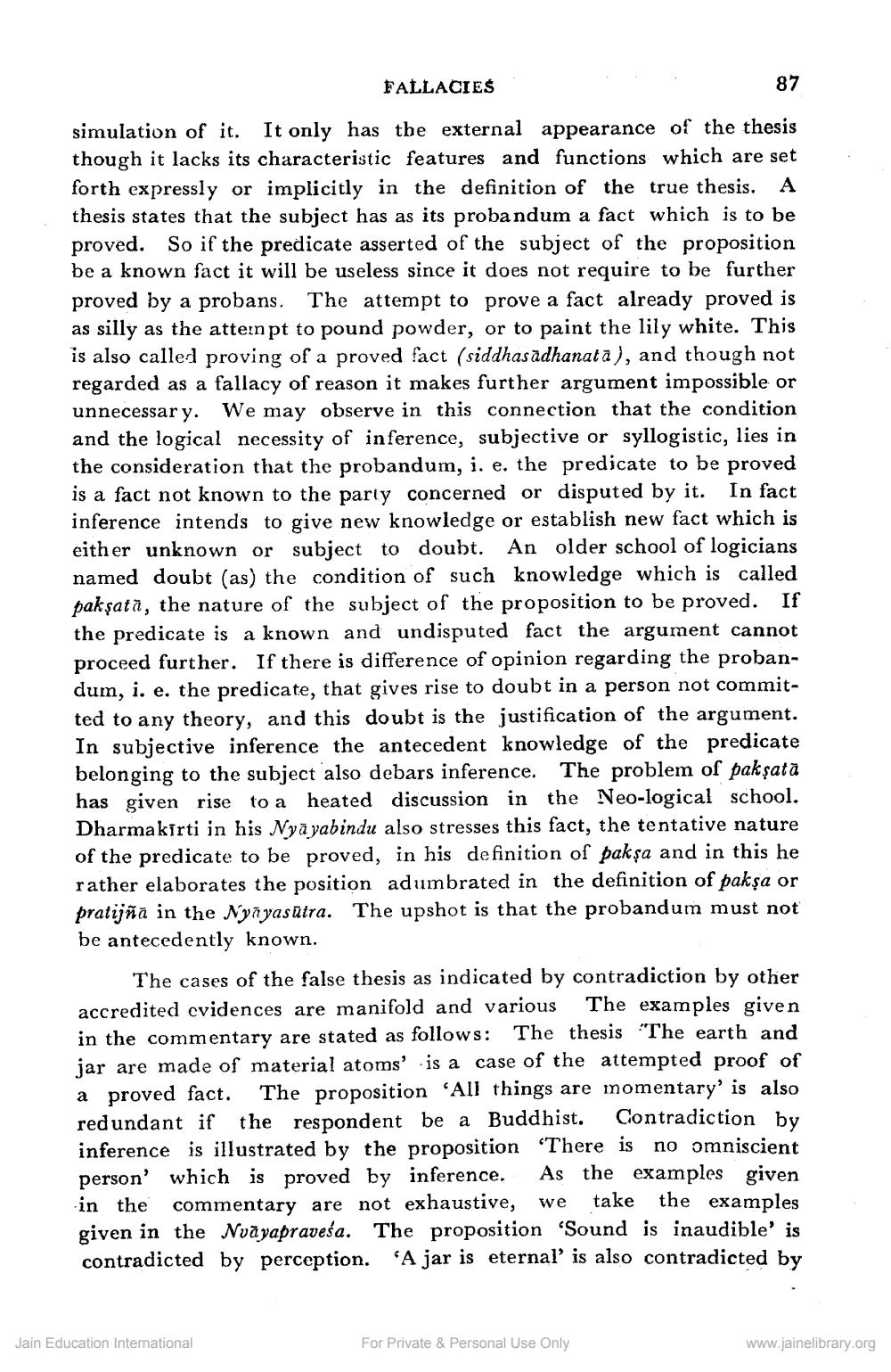________________
FALLACIES
87
simulation of it. It only has the external appearance of the thesis though it lacks its characteristic features and functions which are set forth expressly or implicitly in the definition of the true thesis. A thesis states that the subject has as its probandum a fact which is to be proved. So if the predicate asserted of the subject of the proposition be a known fact it will be useless since it does not require to be further proved by a probans. The attempt to prove a fact already proved is as silly as the attempt to pound powder, or to paint the lily white. This is also called proving of a proved fact (siddhasadhanata), and though not regarded as a fallacy of reason it makes further argument impossible or unnecessary. We may observe in this connection that the condition and the logical necessity of inference, subjective or syllogistic, lies in the consideration that the probandum, i. e. the predicate to be proved is a fact not known to the party concerned or disputed by it. In fact inference intends to give new knowledge or establish new fact which is either unknown or subject to doubt. An older school of logicians named doubt (as) the condition of such knowledge which is called pakşatā, the nature of the subject of the proposition to be proved. If the predicate is a known and undisputed fact the argument cannot proceed further. If there is difference of opinion regarding the probandum, i. e. the predicate, that gives rise to doubt in a person not committed to any theory, and this doubt is the justification of the argument. In subjective inference the antecedent knowledge of the predicate belonging to the subject also debars inference. The problem of pakșată has given rise to a heated discussion in the Neo-logical school. Dharmakirti in his Nyā yabindu also stresses this fact, the tentative nature of the predicate to be proved, in his definition of pakșa and in this he rather elaborates the position adumbrated in the definition of pakṣa or pratijña in the Nyayasūtra. The upshot is that the probandum must not be antecedently known.
The cases of the false thesis as indicated by contradiction by other accredited cvidences are manifold and various The examples given in the commentary are stated as follows: The thesis "The earth and jar are made of material atoms' is a case of the attempted proof of a proved fact. The proposition 'All things are momentary' is also redundant if the respondent be a Buddhist. Contradiction by inference is illustrated by the proposition "There is no omniscient person' which is proved by inference. As the examples given in the commentary are not exhaustive, we take the examples given in the Nvāyapraveśa. The proposition Sound is inaudible' is contradicted by perception. A jar is eternal' is also contradicted by
Jain Education International
For Private & Personal Use Only
www.jainelibrary.org




